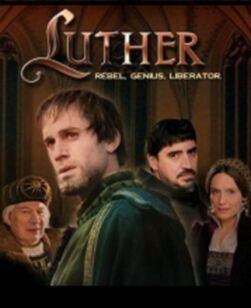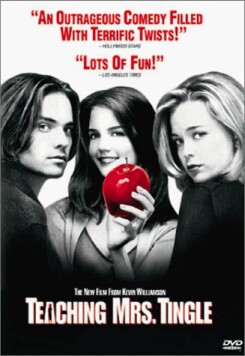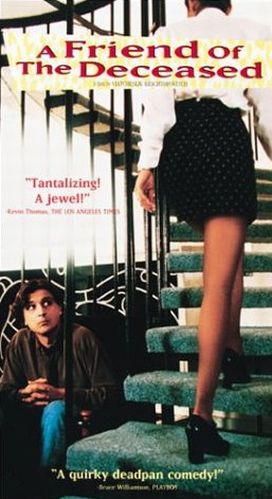Luther
If I were conspiratorially minded, I might be tempted to think it no coincidence that, just at a time when cultural anti-Catholicism droppeth as the gentle rain on the place beneath in movies such as Amen, El Crimen del Padre Amaro, and The Magdalene Sisters — just to mention the three most egregious of the past year — Eric Till should have chosen to give us a hagiographical biopic about Martin Luther.
Not unexpectedly, his Luther (Joseph Fiennes) is a hero not of Protestantism but of the cult of personal authenticity which has succeeded it in the vanguard of religious change. Nowadays, even the churches are less interested in salvation — a concept that seems to grow more obscure with each passing year — than in celebrating the kind of intensity of moral purpose in which the bearded, dark-eyed Mr. Fiennes seems to specialize. He plays Luther just as he did that other Renaissance paragon, Shakespeare (in Shakespeare in Love), as a hero for our time: a hero of feeling.
But let us leave to one side for the moment the question of whether or not Luther was the first modern hero. The film is entitled to treat him this way and, indeed, it is almost impossible to imagine a contemporary film that didn’t. To us what makes a hero is that evidence of the inner life made manifest in the outer, our sense that emotion is pure and sincere and a signature of the soul, and almost any film made today is bound to appeal to that sense. But even on its own terms the film is at best an indifferent success. Luther could be all that Mr Till’s film says he was, but by the end of it we have no more idea what he actually believed than we had at the beginning.
This is rather a problem, as you might imagine, for a film ostensibly about belief. Making all possible allowances for the fact that the doctrine of justification by faith is nobody’s idea of a subject for gripping cinema, we really have to have something to explain why Luther was not just attractive, emotional, brave, virtuous, sincere and authentic in himself but also why he was important. Without some reference to doctrine, or some more than there is here, we are left to wonder why he is remembered, why after half a millennium people might still take an interest in him.
To be sure, there are plenty of wicked, vain, stupid and supercilious Catholics for him to react against, but the great schism in Western Christianity is widely supposed even by many serious-minded Protestants to have involved more than Luther’s high-minded outrage at the sale of indulgences and the inability of lay people to read the scriptures in their own language. Without more of a context for its emotion, the film becomes just the familiar tale of a progressive hero: the little man who takes on a corrupt establishment in order to bring about necessary changes like the break with Rome or the translation of the Bible. But they are changes which, once complete, are of no further interest in themselves.
The problem with progressive heroes, honored solely for having played a part in the wonderful process which has led to our splendid selves, is that they all end up looking just like us. This Luther is of all too modern a sensibility, given to expressing (as the real Luther would never have done) impatience with the Catholic God as “this righteous judge who damns us, threatening us with the fires of hell” and claiming that he seeks “a merciful God, a God who I can love, who loves me.” Even his wrestling with devils takes place off camera and becomes just another signifier of his authenticity rather than a troubling reminder of how medieval he was in his view of the world.
There is a nod to Erik Erikson’s view of Luther’s rebellion as Oedipally inspired, while Sir Peter Ustinov does his grinning, wincing, cringing best in the role of Frederick the Wise, Luther’s surrogate father, whom he plays as a sort of holy fool. Alfred Molina does a nice job with the sales pitch of Johan Tetzel, the most successful seller of indulgences of his day, but such fine actors as Bruno Ganz as yet another Luther father figure, Father Johann von Staupitz, Claire Cox as Katharina von Bora, the “runaway nun” whom Luther marries and Marco Hofschneider as his disciple Ulrich are left with too little to do, while Mathieu CarriPre as Cardinal Cajetan and Jochen Horst as the leveller Karlstadt are mere caricatures.
Discover more from James Bowman
Subscribe to get the latest posts to your email.








